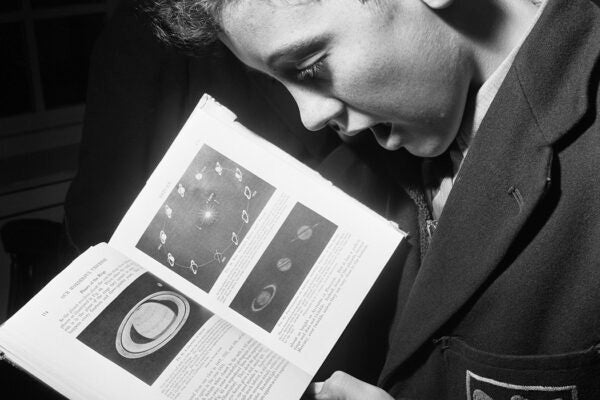For the average kid in many parts of the United States, religion scholar Joshua Dubler writes, the most important holidays may be Christmas, Halloween, and their own birthday, followed closely by the snow day. The snow day—which, by definition can take place only on a weekday when children would otherwise be consigned to the classroom—is an impromptu celebration with its own rituals. We listen to the radio, or keep refreshing the website, in anticipation of the official announcement. Then, there is the donning of snowpants and boots, the sledding and snowball fights and hot chocolate.
“In the time and space conventionally allotted for workday obligations, children and adults are given license to play,” Dubler writes.
Like any holiday, the snow day has a place in pop culture. Modern movies, books, and television shows directed at children celebrate snowy days both for the fun to be had and the relief from the demands of the weekday. In work written for adults, the same is true. The poet Billy Collins, for example, writes of “a revolution of snow… the government buildings smothered, the schools and libraries buried, the post office lost.”
For adults as well as children, a real snow day, one where it’s simply impossible to carry out the day’s regular business, can feel carnivalesque. Dubler cites E.P. Thompsons’s idea of “clock time”—the industrial capitalist invention of time as a substance that can be spent or saved—in contrast to “church time”—a “time of the soul” set aside for festivals and pilgrimage. In reality, Dubler writes, it has never been truly possible to separate those two kinds of time, but we can see them as ideal types. In that way, the randomly occurring snow day might be more set-apart from regular capitalist life than even Christmas, with its intense focus on planning, list-making, and commercial consumption.
“The Snow Day’s passion for disruption, its hunger to consume both the civic and the economic might mark it as the purest festival that we have,” Dubler writes. “It is not an accident that the only way we allow ourselves to maintain such a festival is to keep it safely away from the calendar’s tyrannical penchant for rationalization.”
Once a Week
Of course, not everyone is included in the snow day celebration. Dubler cites emergency room workers and plow drivers, as well as parents of bored and unruly pre-adolescents. He was writing in 2004, but today we must surely add anyone who can, and therefore must, work from home. And of course, for many dual-earner families, it’s no fun being forced to lose a work day or scramble for childcare if work can’t be missed.
Still, if we stressed and overscheduled modern Americans are in need of a civil version of an idealized religious holiday, bringing widespread and sudden relief from clock time, the snow day might be exactly what we’re looking for.







